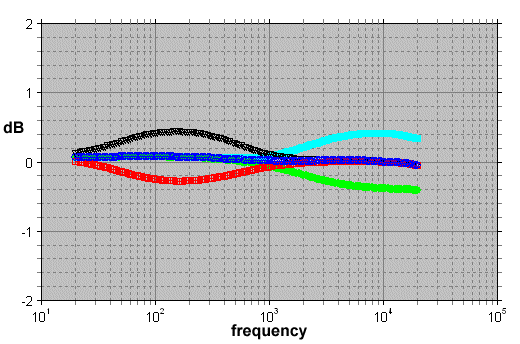I did a study on RIAA accuracy using SPICE several years ago. The following plot shows what happens when you modify capacitor values by +/-5%, with resistor values at nominal.

It's the middle two time constants that are more important, the 318us and 75us. These will affect your transient and phase response more than the others. Placing the 3180us pole can really be sloppy. As you can see, a 5% tolerance leads to a +/-0.4dB error. Not exactly tragic. Especially when compared to the response of your loudpeakers or room effects.
I believe it is more important to match channels than it is to match to an absolute. It does help a little to make sure components in both channels are reasonably close in value. But it's easy for some people to go overboard here. Your time and money are better spent on tubes.
jh
